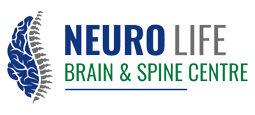![]()
In sports, injuries are prevalent. Sports-related head injuries include a wide range of ailments, from minor concussions to catastrophic traumatic brain injuries. These injuries arise from a blow, jolt, or intense trauma to the head that impairs the brain’s normal function. Specific head injuries can have apparent symptoms right away, while others may be more subtle and take time to show up, making diagnosis and treatment more difficult. The best neurologist in Punjab offers you appropriate treatment.
What is the definition of traumatic brain injury?
An external force- including a charge in brain function or other signs of brain pathology is referred to as a traumatic brain injury. This force can be caused by a blow to the head, an abrupt change in speed or direction or an object penetrating the skull. Traumatic brain injuries can be mild, moderate or severe, affecting cognitive, physical and psychological functioning to different degrees. A traumatic brain injury can cause loss of consciousness, disorientation, memory loss, headaches, nausea, dizziness, mood swings and sensory abnormalities.
The Head Trauma Anatomy:
- Define head trauma: Recognizing the range of injuries from concussions to traumatic brain injuries.
- Mechanisms of harm: investigating the effects of head trauma in different sports and activities.
- The function of safety equipment is to evaluate how well helmets and other gear reduce the risk of brain injuries.
The Effect on Sportsmen:
- Effects right away: Being aware of the warning signs and symptoms of brain trauma both during and right after sports-related occurrences.
- Long-term effects: investigating the possible behavioral, psychological, and neurocognitive impacts of recurrent head trauma.
- Testimonials and case studies: hearing about the healing process of athletes who have suffered head traumas.
What are the symptoms of head trauma?
Depending on the exact location of the brain injury and its severity, symptoms of traumatic brain injury differ significantly. These symptoms could appear right away following the accident, or they could take time to show up. Typical signs and symptoms include:
Physical symptoms
- Headache
- Nausea or vomiting
- Dizziness
- Sensitivity to light or noise
- Blurred vision or changes in vision
- Fatigue or drowsiness
Cognitive Symptoms:
- Confusion or disorientation
- Difficulty concentrating or remembering new information
- Slurred speech or difficulty finding the right words
- Trouble with decision-making or problem-solving
Emotional and Behavioral Symptoms:
- Irritability or mood swings
- Anxiety or depression
- Agitation or restlessness
- Changes in personality
- Social withdrawal or isolation
Sensory Symptoms:
- Ringing in the ears
- Loss of taste or smell
- Changes in hearing
- Sensory hypersensitivity
Consciousness and Alertness:
- Loss of consciousness
- Dazed or confused state
- Difficulty waking up from sleep
What are the treatment plans for traumatic brain injury?
Following are a few typical elements of TBI treatment programmes:
Emergency Medical Attention:
- In cases when a traumatic brain injury is severe, immediate medical attention may be required to stabilize the patient and manage potentially fatal sequelae.
- Monitoring intracranial pressure, oxygen saturation, and vital signs in the intensive care unit can be necessary.
Drugs:
- Prescription drugs may be used to treat symptoms including depression, agitation, migraines, seizures, or pain.
- Anti-seizure drugs can be used to treat or prevent seizures, particularly in the moments following a traumatic brain injury.
Rehabilitation therapy:
- Physical therapy: Enhancing mobility, strength, balance, and coordination is the primary goal of physical therapy.
- OT: Assists patients in regaining their independence in daily tasks, including grooming, eating, and showering.
- Speech therapy: Treats cognitive-communication deficiencies, swallowing issues, and communication challenges.
- Cognitive rehabilitation: Cognitive rehabilitation uses methods and exercises to help with memory, concentration, problem-solving, and other mental abilities.
Support for Psychology:
- Psychotherapy or counseling can help address emotional and psychological issues, including sadness, anxiety, or adjusting to life after an injury.
- Individuals with traumatic brain injury and their families can interact with others going through similar things in support groups, where they can exchange stories and coping mechanisms.
Head injuries are very common because of sports. The best neurosurgeon in Ludhiana will give you proper guidance if needed. Contact Neuro Life Brain & Spine Centre for the treatment of head sport injury.



